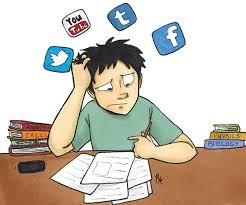Myth #3: The Internet Is A Distraction
The Internet distracts but we use it for researching items and retaining information. If you build up your searching skills and ignore distractions, like social networks, it becomes just a tool.
147
519 reads
The idea is part of this collection:
Learn more about productivity with this collection
How to create customer-centric strategies
The importance of empathy in customer success
The impact of customer success on business growth
Related collections
Similar ideas to Myth #3: The Internet Is A Distraction
3. There are Tons of Free Ideas on the Internet
Ideas are so cheap that you can never really run out of them. People are literally giving away ideas on the internet.
Take advantage of the fact that we live in the golden age of information. The internet is an unlimited source of knowledge, you just have to know where to l...
Understanding WiFi
Many cities use WiFi to provide free or low-cost internet access to people. WiFi networks are easy to set up, inexpensive and unobtrusive.
A wireless network uses radio waves, just like cell phones, radios and televisions .
- A computer's wireless adapter decodes data into a radi...
Social networks have a strong effect on our ideas
You may think it was your idea to keep your desk neat or speak up in a meeting, but your behavior was likely influenced by those in your network.
Once we understand social networks, we can use its power to shape workplaces for the better. You can turn an unhappy team into an inno...
Read & Learn
20x Faster
without
deepstash
with
deepstash
with
deepstash
Personalized microlearning
—
100+ Learning Journeys
—
Access to 200,000+ ideas
—
Access to the mobile app
—
Unlimited idea saving
—
—
Unlimited history
—
—
Unlimited listening to ideas
—
—
Downloading & offline access
—
—
Supercharge your mind with one idea per day
Enter your email and spend 1 minute every day to learn something new.
I agree to receive email updates


